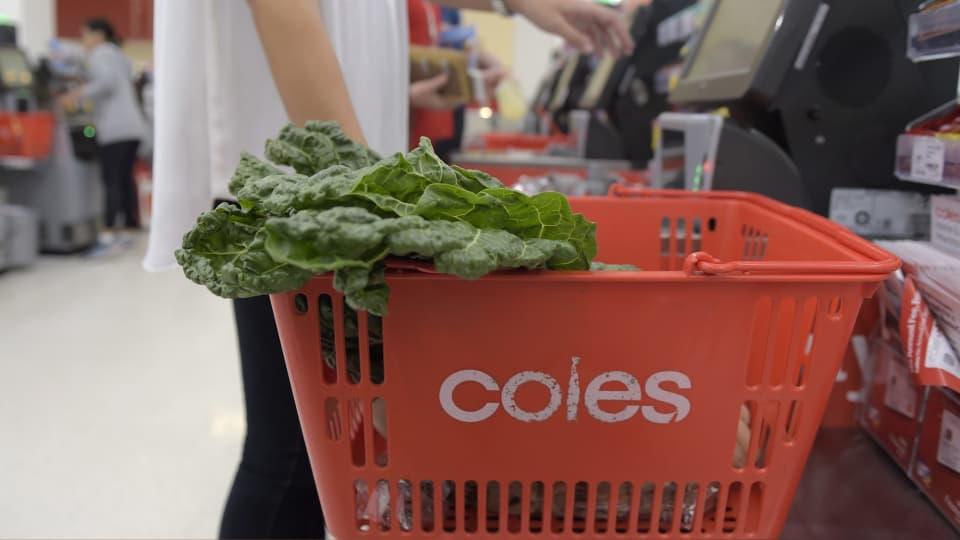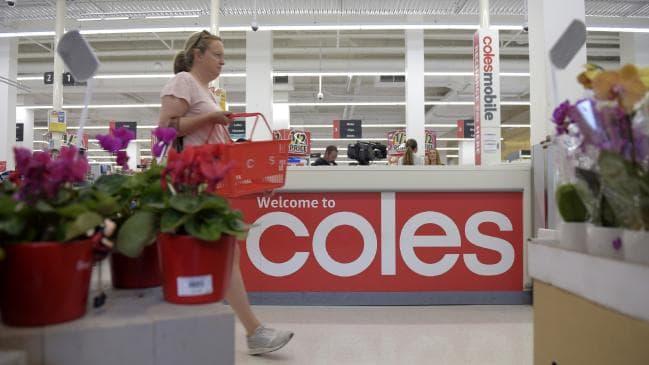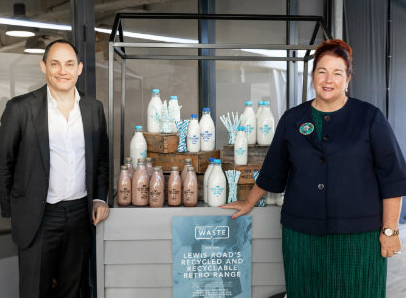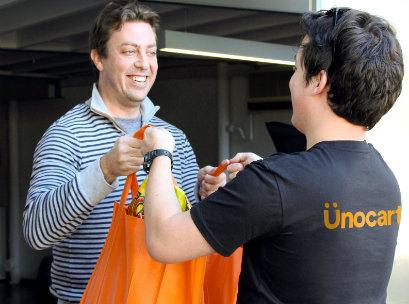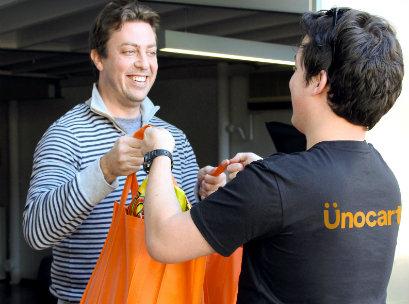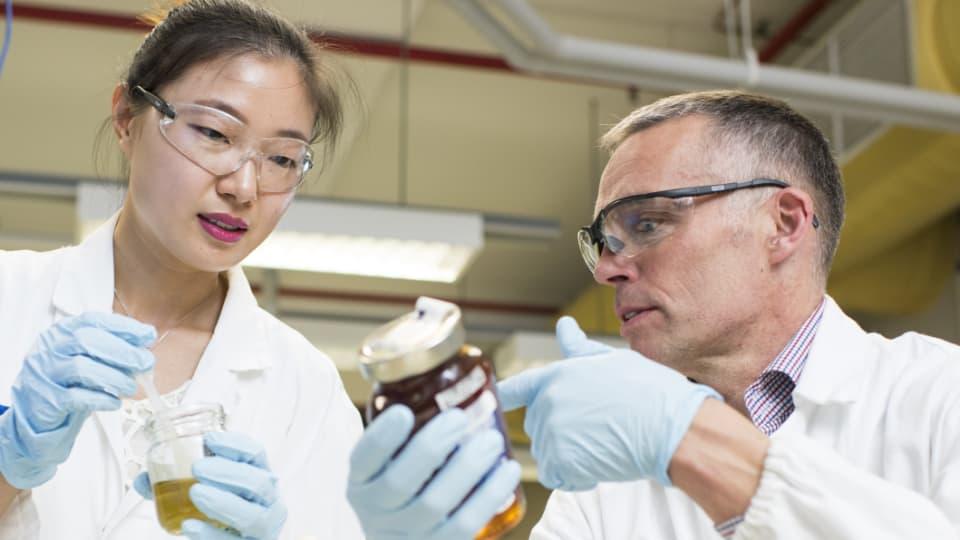
One in five samples of local honey sourced along the eastern seaboard of Australia, including boutique brands, has been found to be fake, deepening the global scandal over the impurity of honey.
The study, which tested five raw samples of honey and 95 local and global-branded honey, found 27 per cent were adulterated. But the big shock was Australian honey. Of the 38 honey samples sourced from supermarkets and markets, 18 per cent, or almost one in five, detected adulteration. The states implicated in the scandal include Victoria, Queensland, NSW and Tasmania.
Professor Mark Taylor (right) and student Xiaoteng Zhou at Macquarie University have completed a survey of 100 samples of honey that shows Australia has adulterated honey.
Professor Mark Taylor (right) and student Xiaoteng Zhou at Macquarie University have completed a survey of 100 samples of honey that shows Australia has adulterated honey.
Photo: Wolter Peeters
It found that 23 per cent of the nine samples tested in Tasmania were adulterated, one out of two samples sourced from NSW were adulterated, a third of the six samples sourced from Queensland weren’t pure honey and 29 per cent of the seven samples sourced in Victoria were fake. Samples sourced from South Australia and Western Australian tested pure.
The testing was undertaken by the same high-security government lab used to test drugs seized by Border Force, the National Measurement Institute.
The scientific team, led by Professor Mark Taylor from the Faculty of Science and Engineering at Macquarie University and PhD student Xiaoteng Zhou, as well as Helen Salouros and Shiva Prasad, also highlighted issues with mis-labelling of geographic regions.
Advertisement
The findings come weeks after the honey industry was put under the spotlight in a joint investigation by Fairfax and 7.30 in relation to imported honey. It embroiled some of the country’s biggest supermarket chains and Capilano’s Allowrie brand, which blends local and imported Chinese honey.
The latest study, peer reviewed and published in the Nature journal, Scientific Reports, and provided to a joint investigation by Fairfax Media and the ABC’s 7.30 ahead of its release, warns that mis-labelling compromises the confidence of customers and raises health and safety concerns.
“Blended honey of unknown origin has been known to contain antibiotics, toxins, irradiated pollen or even alkaloids with the potential to cause organ damage,” the study says.
It is titled "Authenticity and geographic origin of global honeys determined using carbon isotope ratios and trace
elements". Its findings are expected to put pressure on authorities to start testing local honey.
In Australia, authorities only test imported honey – 5 per cent is tested using the C4 sugar test
which is decades old and can’t detect syrups such as rice syrup which are used by fraudsters to
dilute honey.
Play Video'No bees, no crops': The problem with 'diluted honey' Play Video
02:45
'No bees, no crops': The problem with 'diluted honey'
Playing in 5 ...Don't Play
Fruit and vegetable magnate Robert Costa says it's important to protect the beekeeping industry, otherwise we could face trouble with food security.
Peter McDonald, the chairman of the Australia Honey Bee Industry Council (AHBIC), a peak
body for the industry, said local honey was not tested by the authorities.
A sticky situation.
A sticky situation.
Photo: Matt Golding
“It is up to the individual companies that actually buy the honey to then test,” he said.
Mr McDonald, who was briefed by Professor Taylor on the results of the study, said he didn’t believe Australia had a problem with honey adulteration and said customers should be confident what they are buying on the label is pure honey. “They should be very confident," he said.
“I would say there is not a problem in Australia, I am fully confident the Australian honey bee industry is clean and green and we have the best product in the world,” he said.
When asked why he was so confident, he said “I’m a beekeeper and I’m also chairman of the Australian honey bee industry council and I know bee keepers and they are honest, hard-working people and they are just using what nature is providing, bees are providing and they are producing it in a pure form and providing it to people to market.”
But he did concede that he couldn’t know that all beekeepers or producers were doing the right thing.
Professor Taylor said he was surprised at the findings from Australian-sourced honey. “We know that the issue of adulteration is a prevalent problem but we didn’t think it would be that persistent in Australia for Australian-produced products.”
He said the research was robust but believed the results could be conservative given the official honey test, the C4 test, was used, which has come under attack for its inability to detect substances used by fraudsters to beat the tests.
Peter McDonald, chairman of the Australian Honey Bee Industry Council.
Peter McDonald, chairman of the Australian Honey Bee Industry Council.
Photo: ABC
He said he used the official test used by authorities because he wanted to see whether there was a systemic problem in the honey industry.
“The only way to guarantee that you are getting real bona fide honey is to buy it from a local producer where you can see it coming out of the hive or you produce your own honey yourself. That’s really the only deadset guarantee at this moment in time,” Professor Taylor said.
The only way to guarantee that you are getting real bona fide honey is to buy it from a local producer where you can see it coming out of the hive or you produce your own honey yourself.
Professor Mark Taylor
The earlier investigation into imported honey tested 28 honey samples in a German lab that specialises in detecting fake honey using a new test known as Nuclear Magnetic Resonance (NMR).
Capilano denied its Allowrie blended honey brand wasn’t pure honey and criticised the NMR on the basis it wasn’t the official test for detecting honey authenticity and that the results of NMR testing between labs was inconsistent. It also criticised the size of the NMR database.
But the study prompted the Australian Competition and Consumer Commission (ACCC) to launch an inquiry into imported honey.
Professor Taylor said the survey did include some boutique brands and it came from a range of providers.
Professor Taylor said the survey did include some boutique brands and it came from a range of providers.
Photo: Wolter Peeters
Professor Taylor has sent his latest study to the ACCC for investigation.
He declined to reveal the names of the scores of brands that were sampled on the basis it would detract from the study, which was to prove that adulteration is a global problem.
RELATED ARTICLE
Buying fake honey as simple as a Google search
FOOD SAFETY
Buying fake honey as simple as a Google search
Add to shortlist
“The study is not really about particular brands, it’s about looking at the persistence and prevalence of authenticity of honey,” he said.
“It did include some boutique brands and it came from a range of providers,” he said. “And we also tested some Manuka honey and that failed. That is a boutique brand. But as you know there is something in the order of about ten times the amount of Manuka honey sold as there is produced.”
It was part of a broader investigation into honey, which previously looked at urban contaminants in native bees and European bees.
Phd student Xiaoteng Zhou said she decided to test Australian honey after a honey company was fined in Australia in 2016 for selling fake honey.
“And two years ago in 2016 a commercial honey secret was revealed on Facebook and the honey sold in the supermarket might be toxic. It was claimed to be an Australia product but it was actually imported from overseas,” she said.
“These samples were analysed in Germany labs so we were thinking can we do the analysis in Sydney then we designed this project and we collected samples and developed this method,” Ms Zhou said.
Food fraud is a $US40 billion a year industry and it is getting bigger as criminal gangs exploit weak regulation and outdated government tests. Honey is the third most adulterated food in the world, behind milk and olive oil.
The international fraudsters produce the fake honey and sell it to unsuspecting suppliers at a higher price, making a fortune along the way. Chinese vendors use website Alibaba to sell rice syrups and other syrups that claim that they can pass official honey tests. They sell for $US500 a metric tonne, which is vastly cheaper than honey.



